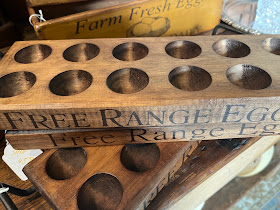In Praise of the Paranormal Curiosity of Charles Fort, Patron Saint of Cranks Literary Hub
The “Hot Hand” Is Not a Myth Nautilus
This is the year of the voter. From Bhutan and South Africa to the UK and the US, 2024 will see elections in more than 80 countries — including the biggest of them all here in India, where we’ve been casting our votes in the middle of fierce summer heatwaves.
As our marathon seven-phase contest began more than a month ago, I pulled out some old and new fiction classics. I was curious: might novelists from Vikram Seth to George Eliot and Jonathan Coe, and short-story writers such as Isaac Asimov, outdo political pundits with their insights into the mysterious ritual of voting in our leaders? More than non-fiction, the best of election fiction can vividly summon the texture and high drama of their times, often giving readers an insider’s understanding of the powerful and the ruthless.
Start with Seth’s capacious 1993 novel A Suitable Boy. This has one of the finest running accounts of the confusion, skulduggery and colour of an Indian election. The year is 1951, and election fever has taken over the new republic — with dizzying results. “Has this entire city lost its senses?” exclaims Saeeda Bai, a courtesan. “Elections! Elections! Is there nothing else in the world other than paper and boxes?”
Seth has a journalist’s eye for detail — in student elections, rivals from various political parties kick off the season by “beating each other up with shoes and lathis as a prelude to fighting for votes”, and a wily senior politician is described as a “river-dolphin”, who enjoys swimming in silty water and outwitting the crocodiles around him. Politicians make for fine, dastardly villains, but Seth’s portrait of Mahesh Kapoor, veteran freedom fighter and Congress state minister, shrewd if beset by family problems and an irrepressible, trouble-brewing son, is more sympathetic than most.
As his home turns into a “political stage, clinic, and fairground”, Kapoor, facing a tough contest in a populous, battleground state loosely modelled on Uttar Pradesh, “listened, explained, conciliated, tied matters together, disentangled others, wrote notes, issued instructions, spoke loudly, spoke softly, examined copies of sections of the new electoral rolls that were being revised for the coming General Elections, got angry and was extremely sharp with someone, smiled wryly at someone else . . . ” Alas, his bid for power is threatened by a highly effective disinformation campaign — a reminder that fake news and slander thrived even in a pre-internet age.
Not all classics outlast their time. A return visit to moralising prose of George Eliot’s Felix Holt: The Radical(1866) proved a painstaking warning to novelists to tread carefully in the political mire. But one that’s been a joy to read, three decades on, is Jonathan Coe’s gleeful What a Carve Up! (1994). Coe’s wonderfully corrupt and ever so murderous Winshaw family stand in as an emblem for influential insiders at the political table in the 1980s, bringing the Kuwait crisis and the prelude to the first Gulf war of 1990-91 back to life, in an entertaining romp.
Coe is equally brilliant when he chooses to be serious. “And so they sit at home, getting fat on the proceedings and here we all are. Our businesses are failing, our jobs disappearing, our countryside choking, our hospitals crumbling, our homes being repossessed, our bodies being poisoned, our minds shutting down, the whole bloody spirit of the country crushed and fighting for breath.” Sound familiar?
This rant against rotten politics finds a contemporary echo and elaboration in Great Expectations (2024), Vinson Cunningham’s sharp bildungsroman. The novel’s protagonist, David, offers a bird’s-eye-view of the hope, glory and crushed dreams of a presidential campaign with a candidate based on Barack Obama. But what makes this coming-of-age novel so fresh and shrewd is, as Cunningham said in a recent podcast, that today’s generation are fighting to escape not their parents, not religion or their own upbringing, but a “superstructure”. What they face and struggle against, he suggests, are a clutch of powerful institutions. “It’s finance with a capital ‘F’. It’s government with a capital ‘G’.”
What if elections came to an end? In his 1955 short story, Franchise, the late science fiction writer Isaac Asimov predicted that by the 2000s, it would no longer be necessary for everyone to vote. Instead of universal franchise, a massive computer called Multivac will predict the results of the election from just one voter, in this case, the very ordinary Norman Muller, who is at first frightened by the responsibility, unwilling to be the chosen one. But he comes around: “He was, in his own person, for this one day, all of America!”
I hope that such a future remains the work of fiction. Yet, as this shelf of election stories reminded me, in every decade, each generation steps out to vote, sometimes in anger or despair, but carrying even in the grimmest autocracy, some spark of a desire for better times ahead. A very human hope.
Join our online book group on Facebook at FT Books Café and subscribe to our podcast Life & Art wherever you listen

